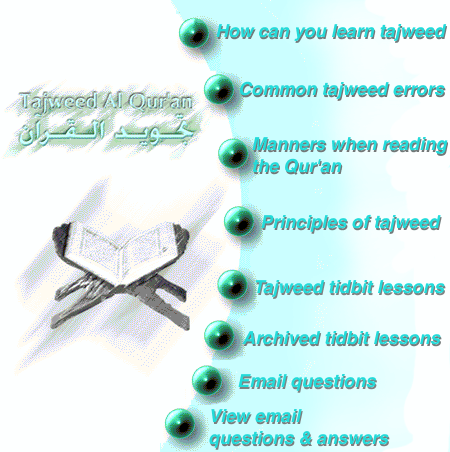|
|

copyright © 2002, abouttajweed.com, all rights reserved |
Brief Grammar SummaryThis
is not meant to be a comprehensive grammar lesson, but before the lessons on
hamzah al-wasl Words
in Arabic are divided into one of three categories.
1.
Verbs
2.
Nouns
3.
Verbs
|